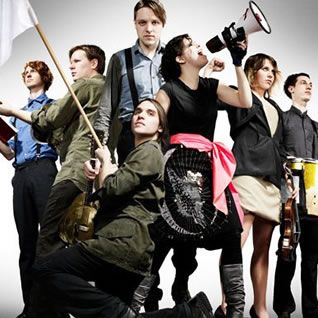On this day in 1987 U2’s fifth album hit the shelves. Since then The Joshua Tree has topped the charts in 20 countries and sold over 25 million copies worldwide. Singles like the driving “Where the Streets Have No Name” and the gospel-infused “I Still Haven’t Found What I’m Looking For” fueled the album’s success, while their already intense live show attracted even more fans. The public success of The Joshua Tree is well documented, as are the intricacies of the recording and the writing process. So instead of rehashing those fascinating details, I’d like to share my own personal story with the album. After all, what ultimately attracts people to music isn’t how successful it is, but how it impacts them.
If I were to make a list of my favorite bands I wouldn’t place U2 on it. However, if you were to ask me what albums have had the biggest impact on my life I would be hard pressed to find an album more important to me than The Joshua Tree. Since I was only three when the album came out, I first discovered it through my older brothers in the mid-90s. At that point the album had been out for at least seven years, but it was still relevant in our household and no doubt in many others. For us that may have been because the lack of profanity meant we could listen to it around our parents, but there was also something deeper going on.
At the time I was deeply invested the 90s grunge movement. As I moved closer to being a teenager the songs of Pearl Jam, Soundgarden, Live, and Nine Inch Nails were feeding me both creatively and lyrically, while my Petra albums found their way to the back of my closet. In the midst of heavier, darker rock I distinctly remember the moment that I first really listened to The Joshua Tree, and how much it impacted me. From the opening keyboard notes of “Where the Streets Have No Name” to the unabashed aggression of “Bullet the Blue Sky” the band moved between genres with ease, executing them all to perfection. The best descriptive term for the music on this album that I could have uttered at the time was “magical.” The technical side of the album was brilliant, but where it truly gripped me was in Bono’s lyric writing and emotional vocals.
Even as a young kid I understood something – this was the most impressive religious album that I had ever heard. When Bono sang “You broke the bonds and you loosed the chains/carried the cross and all my shame” the theme of the album was made obvious, but it is in the other songs where the distinctively spiritual message shines through. Whether it’s the anti-war “Bullet the Blue Sky” or the heartache of “With or Without You”; the themes reflected are at the same time both worldly and spiritual. As a result, Bono was willing to plunge to the depth of the soul with his lyrics, and those lyrics touched many.
Back then I didn’t comprehend all of these things about the album, I just knew that it moved me in ways that few albums did. Any interpretation I would have supplied would have been purely surface level. That’s not the point though – the point is that it was influencing me. At a young age it made me the think about war, about love, about theology, and even more so, about how I effected those around me. The effect it had on me was a profound one, one that still has me coming back to these songs years later.
Today as a producer I may be able to break down every piece of music on the album, stripping it of the magic it once captivated me with. What I can’t take away are the lyrics and the way that Bono sings them. The intricately simple music provided the perfect platform for him to soar through choruses and speak to the human condition. Few albums transcend time and genre, and with this album U2 did both. 24 years later The Joshua Tree is still speaking to people of all ages, and we are all still building then burning down love.

